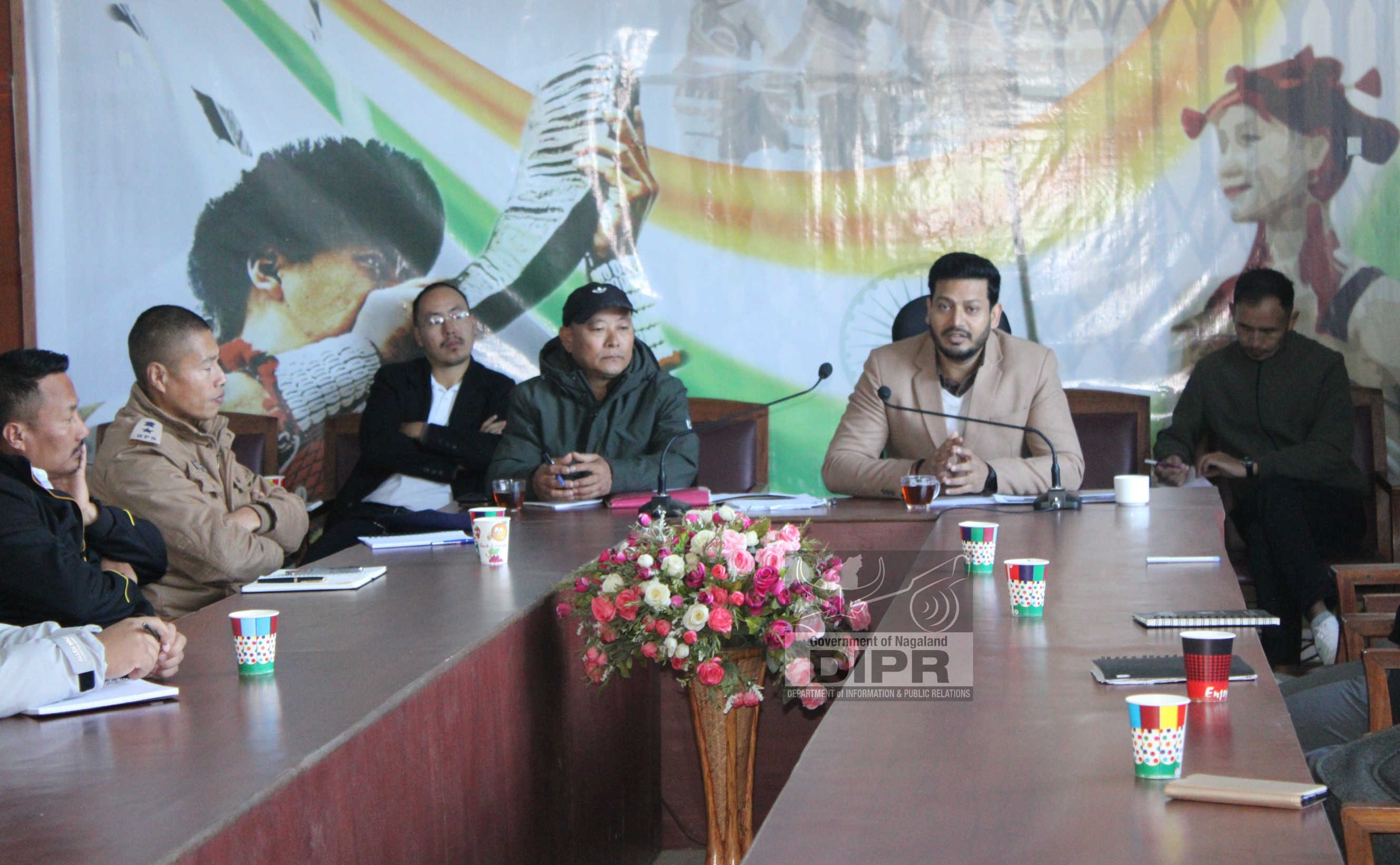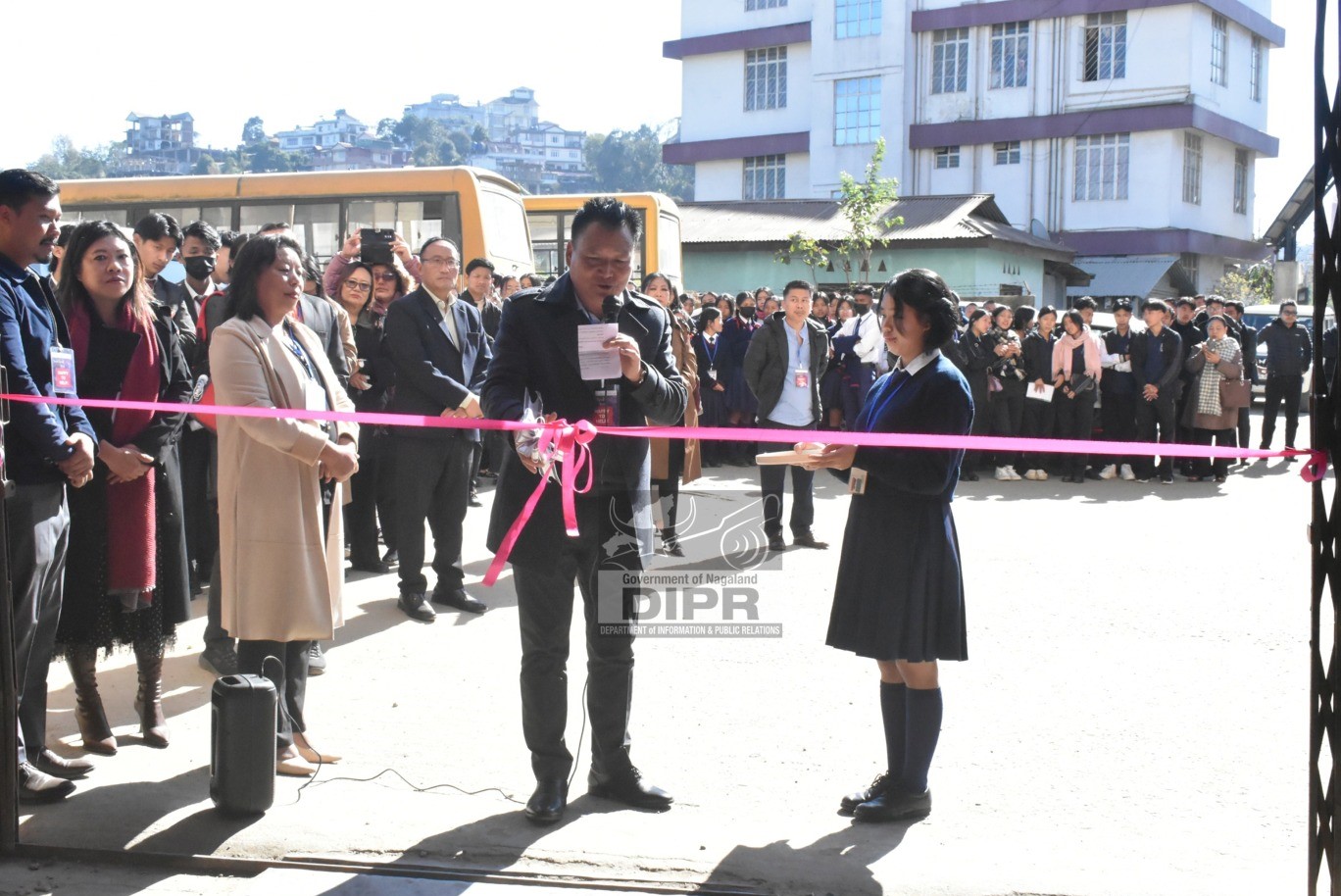A State-Level Workshop on Nagaland Food & Feed LINK (N2FL), Leveraging Information, Networks and Knowledge Decoding Food and Feed Value Chains and DRE Integration for Nagaland was held at Japfü Hotel, Kohima on 23rd May 2025.
Advisor, Agriculture, Mhathung Yanthan in his address said that the workshop is a gathering of minds and hearts united by a common vision to harness the full potential of Nagaland’s Agriculture and livestock sector through clean energy innovations. He mentioned that we are witnessing a pivotal shift in how we view agriculture and its allied sectors, which is no longer merely as subsistence-based livelihoods, but as powerful engines of economic growth. With this shift, the State Government is actively reviewing policies with a focused mission to move Nagaland from a consumer-driven economy to a production-oriented one which is capable of generating marketable surpluses and ensuring food sovereignty.
He stated that the agenda before us is indeed bold and timely, to position clean energy not merely as a support system, but as a strategic enabler of agricultural transformation. In other words, energy is not just what powers our machines rather it is what can now power our development. Agriculture remains the lifeblood of our people, engaging nearly 70% of Nagaland's population directly or indirectly. Yet, despite the centrality of agriculture in our livelihoods and culture, we face significant challenges that require systemic transformation, he added.
Mhathung also highlighted to invest in scaling up local piggery development across the State, so that we can address multiple goals at once, like boosting food self-sufficiency, create employment, support rural livelihoods, and open doors for our youth in animal husbandry. Moreover, scaling pig production can catalyze the growth of a vibrant local feed industry. Our farmers already grow, or can grow, several crops ideal for feed. These include Tapioca, collocasia which are rich source of energy and Maize which is a foundational ingredient in animal feed that can be grown across the State in jhum fields
Meanwhile, huge quantities of crop residues and food by-products remain underutilized and this is where clean energy and integrated innovation can step in to transform waste into value. Soybean- known for its high protein content, Mustard which provides oilcake, an excellent feed supplement can be grown all along the foothills & valley lands. By promoting these crops alongside livestock and enabling decentralized feed processing through clean energy, we can create circular, locally-driven value chains, He said.
This is where clean energy becomes a true game changer. Technologies such as solar-powered cold storage, biogas plants, solar dryers, and decentralized microgrids offer practical solutions to many of our pressing challenges and they can reduce food losses, improve feed preservation, and bring efficiency to our entire value chain.
He therefore urged the participants to take this workshop as more than a platform for dialogue but a launchpad for action-one where food security, feed sufficiency, and clean energy converge in an integrated development vision for Nagaland.
He also urged to focus on integrated approaches like dual- purpose crops, reuse of agricultural by-products for feed, improved post-harvest handling, and investments in climate-resilient, economically viable value chains. He also mentioned that our efforts must be inclusive and acknowledge and uplift the roles of women, youth, and indigenous knowledge holders in shaping our agricultural future.
He said that we need synergy across departments in Agriculture & allied Departments, Power, Rural Development, Industries and collaboration with Research Institutions, Private Innovators, and most importantly, Farmers themselves and their voices, experiences, and ideas must guide our journey forward.
(Siizo Kikhi, IA)



